31 Jul2019
By Diane Angelucci
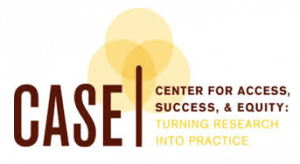 This article originally appeared in Rowan Today and is reprinted with permission.
This article originally appeared in Rowan Today and is reprinted with permission.
Even in the best school districts, obstacles to equal education and opportunities can hide far below the surface
To help districts unearth and address these issues, the Center for Access, Success and Equity (CASE) in Rowan University’s College of Education has forged equity-focused research practice partnerships with several school districts—one of CASE’s three research areas. CASE is establishing research as central to the College of Education in three ways — through partnerships with districts, through grant-funded research, and through the College’s Ph.D. program.
“I can’t speak enough about our experience with CASE,” said Piera Gravenor, superintendent of Delsea Regional School District, which has worked with CASE for the last two years.
31 Jul2019
By Katrina Norfleet
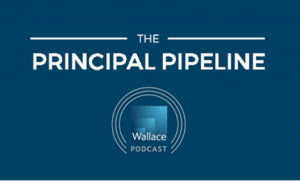 The Wallace Foundation has launched Series Two of The Principal Pipeline podcast with it seventh episode, A District Strategy to Improve Student Achievement. The episode features Linda Chen, chief academic officer for the New York City public schools, and Susan Gates, co-principal investigator of the Principal Pipelines: A Feasible, Affordable, and Effective Way for Districts to Improve Schools study. Chen and Gates walk listeners through important findings on student outcomes and their significance. Also spotlighted in the podcast is Wanda Luz Vazquez, a New York City principal, who discusses her experience as a “pipeline” principal.
The Wallace Foundation has launched Series Two of The Principal Pipeline podcast with it seventh episode, A District Strategy to Improve Student Achievement. The episode features Linda Chen, chief academic officer for the New York City public schools, and Susan Gates, co-principal investigator of the Principal Pipelines: A Feasible, Affordable, and Effective Way for Districts to Improve Schools study. Chen and Gates walk listeners through important findings on student outcomes and their significance. Also spotlighted in the podcast is Wanda Luz Vazquez, a New York City principal, who discusses her experience as a “pipeline” principal.
“It is true that a principal has to do everything under the sun,” said Chen, “But, at the end of the day, the purpose is to advance learning and instruction for every student and that is what we really focus our efforts on.”
The Principal Pipeline podcast features principals, district and state leaders, and university officials who have developed strong principal pipelines and are eager to share their lessons learned with the broader field. While Series One explored how these efforts proved to be feasible and affordable in six large school districts, Series Two examines the effectiveness of building principal pipelines. New episodes are released every Wednesday.
View the full list of podcast episodes, and learn more about the Wallace Foundation principal pipeline strategy.
31 Jul2019
By Charles Tocci, Terri Pigott and Ann Marie Ryan
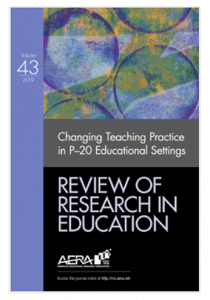 Untold amounts of time and money are invested in making changes to teaching practice, often with the best intentions and limited ideas about how to actually pull it off. In early May, the Woodrow Wilson Foundation announced a major new initiative to change the way American history is taught across the country. The Foundation argues that it is a failure of teaching that two out of three Americans cannot pass the U.S. citizenship exam. Accordingly, its new “American History Initiative” will include an online platform for professional development, lessons, and interactive learning materials as well as expanded teacher fellowships and research on curriculum. It is a sizable, much needed, and laudable investment of resources in history education. However, one key question remains: Why do they think this will work?
Untold amounts of time and money are invested in making changes to teaching practice, often with the best intentions and limited ideas about how to actually pull it off. In early May, the Woodrow Wilson Foundation announced a major new initiative to change the way American history is taught across the country. The Foundation argues that it is a failure of teaching that two out of three Americans cannot pass the U.S. citizenship exam. Accordingly, its new “American History Initiative” will include an online platform for professional development, lessons, and interactive learning materials as well as expanded teacher fellowships and research on curriculum. It is a sizable, much needed, and laudable investment of resources in history education. However, one key question remains: Why do they think this will work?
30 Jul2019
By Jerrica Thurman
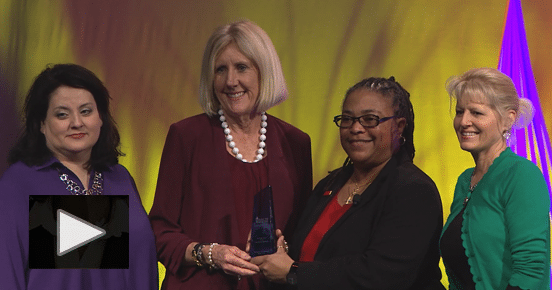
AACTE is committed to recognizing excellence in educator preparation through its prestigious annual Awards Program. Among the nine categories of awards, the Best Practice Award for the Innovative Use of Technology honors AACTE members that infuse technology throughout their curriculum in an innovative way. AACTE’s Committee on Innovation and Technology sponsors this award and selects a school, college, or department of education that uses technologies to stretch beyond standard practices in teacher education.
The video above features AACTE member institution Northeastern State University’s (NSU) College of Education, the 2018 recipient of the Best Practice Award for the Innovative Use of Technology. Dean Vanessa Anton explains how NSU’s Robotics Academy of Critical Engagement (RACE) program works and why it received the award.
29 Jul2019
By Jerrica Thurman
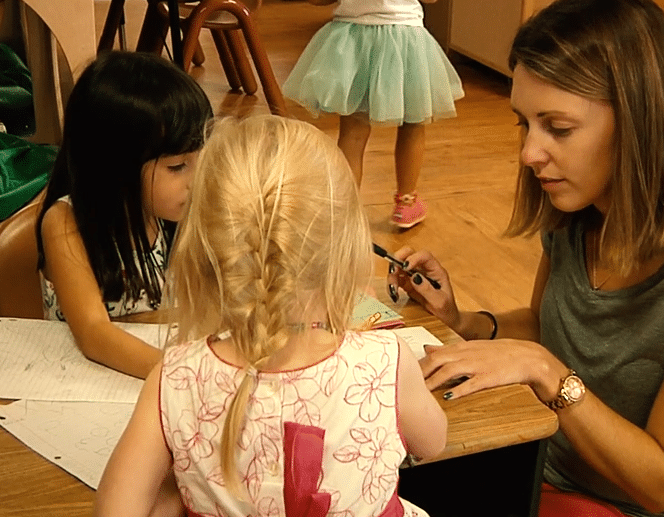 Developing and sustaining partnerships with local school districts are critical to the success of the Bowling Green State University (BGSU) Inclusive Early Childhood (IEC) program. Superintendents who work with BGSU assert that all parties need to understand the challenges each school district and university face and must be willing to bridge the gap between research and clinical practice together. BGSU’s teacher candidates are deployed for clinical practice in special education at local schools including in rural areas.
Developing and sustaining partnerships with local school districts are critical to the success of the Bowling Green State University (BGSU) Inclusive Early Childhood (IEC) program. Superintendents who work with BGSU assert that all parties need to understand the challenges each school district and university face and must be willing to bridge the gap between research and clinical practice together. BGSU’s teacher candidates are deployed for clinical practice in special education at local schools including in rural areas.
“One of the pieces that works really well for us is that all of the people working in the education department at the university are parents themselves of students in our district so there’s a vested interest,” said Francis Scruci, superintendent of Bowling Green City Schools. “I think there’s a mutual respect. We certainly respect what the university does and I think they respect what we’re trying to do at the K-12 level and we understand the challenges that both of us face. We are willing to bridge that gap and try to help each other become successful.”
BGSU’s overall objective is to prepare graduates of the IEC program to teach young children with and without disabilities in inclusive settings. The IEC program blends the best practices from early childhood education with early childhood special education. It addresses the knowledge, skills, and values necessary to meet the needs of each child. Graduates of the program are prepared to provide differentiated, evidence-based instruction to young children from birth through grade 3.
To learn more, watch the Developing and Sustaining Partnerships video highlighting BGSU’s Models of Inclusive Clinical Teacher Preparation, part of AACTE’s Research-to-Practice Spotlight Series.
29 Jul2019
By Jane E. West
This blog post is written by AACTE consultant Jane West and is intended to provide update information. The views expressed in this post do not necessarily reflect the views of AACTE.
Congress is heading out of town—the House leaving today for a six-week recess and the Senate leaving at the end of next week. With the amazing budget deal headed for the finish line, September promises to be full of appropriations bills, including the education funding bill we’ve all been waiting for.

Unbelievable: Congress and the White House Make a Deal on 2 Year Budget Caps and Debt Ceiling
In a stunning proactive bipartisan move, the Congress and the White House have agreed to a two-year budget deal. This frees up all lawmakers and the president to focus on the 2020 elections without the threat of a government shutdown. Key features of the deal include the following:
26 Jul2019
By Meghan Grenda

How are members making the most of their membership? Watch the new AACTE member video and hear what your peers have to share about the many ways being a member of AACTE has benefited them—federal and state advocacy, events and training, tools and resources, and relationship building.
26 Jul2019
By Katrina Norfleet
 The Chronicle of Higher Education recently issued a special report, “The Campus as City: Crucial Strategies to Bolster Town-Gown Relations and Run a Thriving 21st-Century Institution.” The report explores the concept of “running a city within a city”— how colleges that are often towns or cities themselves are responding to the financial challenges of staying connected to their surrounding communities to provide support and attract and engage students.
The Chronicle of Higher Education recently issued a special report, “The Campus as City: Crucial Strategies to Bolster Town-Gown Relations and Run a Thriving 21st-Century Institution.” The report explores the concept of “running a city within a city”— how colleges that are often towns or cities themselves are responding to the financial challenges of staying connected to their surrounding communities to provide support and attract and engage students.
In the Chronicle’s article, How One College Went ‘All In’ in Its Neighborhood, author Scott Carlson profiles a promising partnership between one institution and its community. He writes:
Educational opportunity is vital to a thriving city. And while entrepreneurial Portland, Ore., is doing well in many respects, some neighborhoods, as anywhere, are down and out. That’s especially true on the north side, near old industrial sites, where the population is less white and Concordia University, a private liberal-arts institution, for years shared a corner with a rundown elementary and middle school.
Continue reading the full article.
26 Jul2019
By Katrina Norfleet
The Teacher Educator national peer-reviewed journal recently shared the top 10 most downloaded articles in the first three months of 2019. The most downloaded article in 2018 was “Current Issues in Teacher Education: An Interview with Dr. Linda Darling-Hammond” with 2,726 downloads. Other popular articles cover a range of topics including multicultural teacher education, perceptions of ELL students, student stress and coping, and teaching reflective practice. The full list of the top 10 articles are included in the table below.
AACTE President and CEO Lynn M. Gangone serves on Editorial Advisory Board of The Teacher Educator, a forum for promoting discussion among educators who seek to challenge existing boundaries in the field. The journal invites AACTE members to submit notable work on current
24 Jul2019
By Tommy Navickas
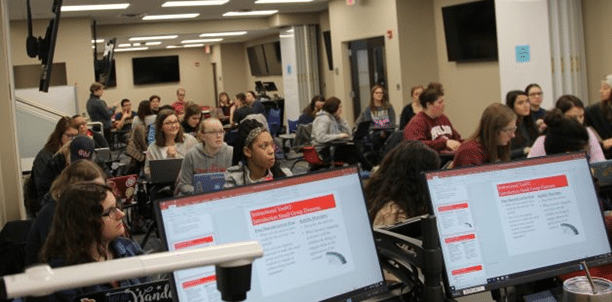
This article and photo originally appeared in Illinois State University News and are reprinted with permission.
For several years, the College of Education has prioritized the redesign of classrooms and computer labs to reflect the flexible learning needs of aspiring educators and their future students.
The first reimagined collaborative space was Studio Teach. The third-floor, approximately 2,000-square-foot area overlooks the University’s Quad. It features dozens of flexible seating options, stations where multiple students can connect to a single monitor, SMART Boards, a 3D printer, an educational gaming area, a writeable white board partition, multiple wall-mounted monitors, and an array of technology available for checkout.
Storage areas on DeGarmo’s garden level have also been converted to classroom spaces with several interactive monitors that can be controlled individually or together through a single source. In addition, several classroom spaces in DeGarmo have been remodeled with a few more to come this fall. They too incorporate flexible seating and cutting-edge educational technologies.
The Richard L. Benson Flexible Learning Space was created with the help of funding by the alumnus for which it was named.
It’s a shift in mindset reflective of the evolving state of PreK–12 learning environments across
24 Jul2019
By Deborah Koolbeck
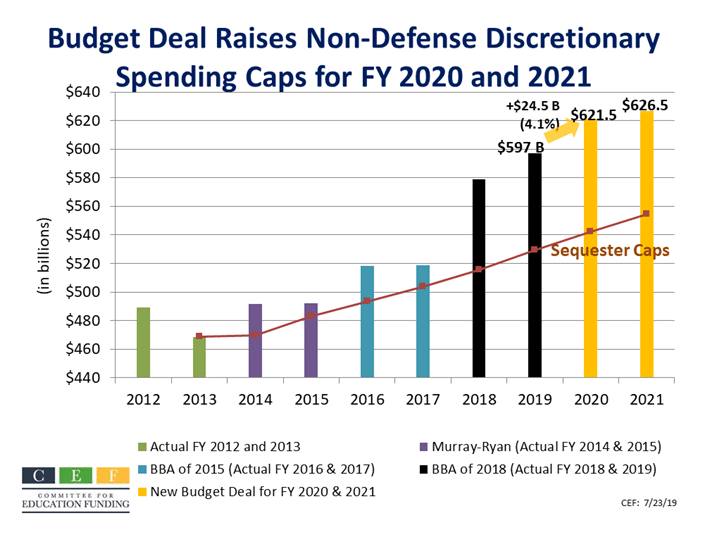 Energized by the need to raise the debt ceiling of the United States by early September, congressional leaders and the Administration struck a deal to raise the discretionary spending caps as established in the Budget Control Act of 2011 on July 22, 2019. In addition, the deal suspends the debt ceiling through July 2021, preventing the debt ceiling from being entangled in the 2020 election campaigning and the associated political maneuvering.
Energized by the need to raise the debt ceiling of the United States by early September, congressional leaders and the Administration struck a deal to raise the discretionary spending caps as established in the Budget Control Act of 2011 on July 22, 2019. In addition, the deal suspends the debt ceiling through July 2021, preventing the debt ceiling from being entangled in the 2020 election campaigning and the associated political maneuvering.
Known as the Bipartisan Budget Agreement for Fiscal Years 2020 and 2021, the proposed legislation still needs to pass the U.S. House of Representatives (House) and the U.S. Senate (Senate), both of which intend to take up the measure before the August recess. This sets the stage for the FY20 appropriations process to move forward, although there will be a Continuing Resolution (CR) passed before September 30 to give the House and Senate time to conference their bills. The Senate Appropriations Committee has not moved any of the 12 appropriations bills through the subcommittee and full committee process, and the House has passed 10 of the 12 bills. The House moved the Labor, Health and Human Services, Education, and Related Agencies (Labor-H) bill in a “minibus” that included the Defense bill—reminiscent of last year’s efforts that led to the two bills signed together into law before the end of the fiscal year. While the Senate Appropriations Committee currently intends to move both Labor-H and Defense bills together through their process, it is unclear if this will be maintained based on the budget deal. The deal does specify that the Congress shall avoid an omnibus, a bill that includes all 12 appropriations bills with no stance on minibuses illuminated.
This deal sets the defense discretionary cap at $667 billion for FY20 and $672 billion for FY21 and sets the non-defense discretionary cap at $622 billion for FY20 and $627 billion for FY21. This means we can expect a tight year in FY21 given the small increase of $5 billion over FY20 for non-defense discretionary funding.
For now, the next step to watch is the allocation of funding to each of the 12 appropriations bills in the Senate. The Labor-H bill contains approximately 33% of the non-defense discretionary, but it has never received 33% of the increased funding. The allocation will determine if the Senate keeps any of the increases that the House passed to programs important to the profession, including the Teacher Quality Partnership grant program, the Special Education Personnel Preparation grant program, and Title II of the Every Student Succeeds Act.
19 Jul2019
By Deborah Koolbeck

As Congress rolls into August recess, what is on the “must do” list for September and beyond? Will a budget deal emerge to raise the caps on both defense and non-defense discretionary funds? Could the government default on its debt, or will Congress raise the debt ceiling? What about the Fiscal Year 2020 appropriations deadline of September 30? Is the government going to shut down? Is the Higher Education Act reauthorization in motion or stalled, and what does either one mean for fall congressional activity?
These questions and more will be explored in this AACTE member exclusive webinar. Attendees will have the opportunity to ask questions at the end. This webinar will be recorded and posted on the AACTE Advocacy Center federal page.
Register today!
July 30, 2019 5:00 – 6:00 p.m. EDT
July 31, 2019 11:00 a.m. – 12 noon EDT
Note: Like the Congress, AACTE Federal Update Webinars is taking an August recess. Watch for the blog post announcing the September Federal Update Webinars for dates and times.
19 Jul2019
By Katrina Norfleet
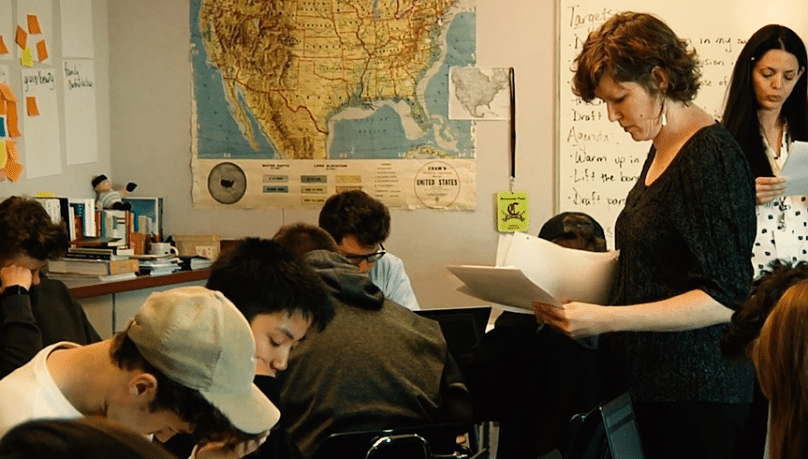
One of the key components of Portland State University’s (PSU) Secondary Dual Education Program is its success in developing and sustaining partnerships with local school districts.
Marvin Lynn, dean of the Graduate School of Education at PSU, shares how the program prepares secondary education teacher candidates to bring content knowledge and “the knowledge that special education teachers have to bare about the learning process and about how to work with these unique populations” to local schools.
Educators like Ana Capac, a special education teacher at Evergreen High School, specifically ask for student teachers from the PSU program because of the mindsets and approaches they bring to the classroom and community. “It is really important that I’m supporting both the student teachers I’m working with on how they are developing this mindset of inclusion, supporting all students, and working within the school to support their colleagues as well,” says Capac.
Andrew Gilford, assistant principal at Clackamas High School, emphasizes this culture shift to more collegial relationships where the PSU teacher candidates and the classroom teachers “speak the same language” and can work together to serve students with disabilities and improve learning outcomes. “Coming from this kind of program and this kind of background, you are immediately an advocate,” adds Rob Parness, special education teacher and former academic coach at Tigard High School.
In discussing the culture shift, Will Parnell, curriculum and instruction department chair at PSU, emphasizes that the program was built based on relationships with the community. “There were local districts that were saying ‘we want special ed teachers that can support students in general ed classrooms’ but they found out that teacher prep programs were not focused on that,” says Susan Bert, assistant professor of practice, special education at PSU. “So there was a need.”
To learn more, view the Developing and Sustaining Partnerships video featuring PSU’s Secondary Dual Education program.
19 Jul2019
By Brian McNeill
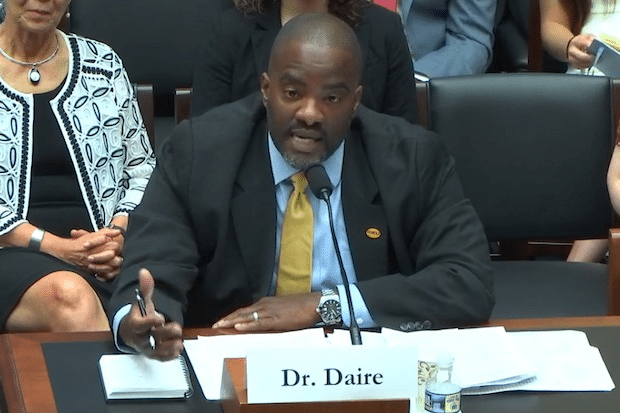
This article and photo originally appeared in VCU News and are reprinted with permission
Andrew Daire, dean of the School of Education at Virginia Commonwealth University, testified at the U.S. House Wednesday about how VCU is working to prepare high-quality, dedicated classroom teachers and encouraged Congress to support similar initiatives across the country.
“Immediate and innovative action is required to address the challenges in high-needs and low-performing schools with families living in generational poverty and disparities in student learning outcomes,” said Daire, testifying before a joint U.S. House Education and Labor Committee subcommittee hearing on “Educating our Educators: How Federal Policy Can Better Support Teachers and School Leaders.”
“The challenges faced by many of our schoolchildren, and in many of our schools, are not average and will not be met with average efforts,” Daire said in his prepared testimony. “We need to be bold and aspirational in our desires and efforts to address these challenges.”
19 Jul2019
By Michael Rouleau
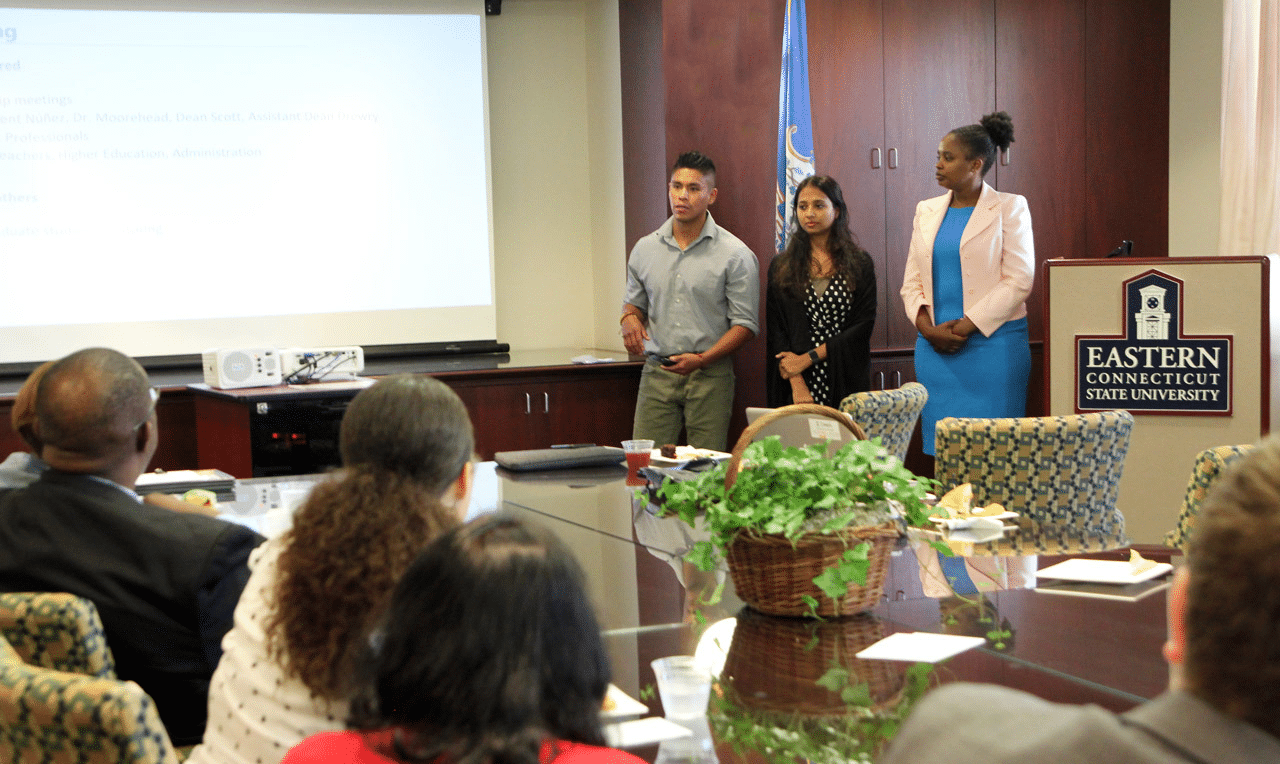
This article and photo originally appeared on the Eastern Connecticut State University website and are reprinted with permission.
School districts across the nation continue to face a lack of minority teachers. Eastern Connecticut State University’s participation in the Holmes Master’s Program seeks to alleviate this problem. On June 28, Eastern celebrated three aspiring teachers from underrepresented backgrounds who will soon enter the teaching profession. Faith Kioko (Ashford), Ian Stygar (Lebanon) and Sayantani Nandy (Ellington) were honored at the annual Holmes Master’s Luncheon, hosted by the School of Education & Professional Studies and Graduate Division.
The American Association of Colleges for Teacher Education’s (AACTE) Holmes Program supports students from historically underrepresented groups who are pursuing careers in education. Eastern continued its partnership with Holmes, hosting its third cohort of Master’s students this year.
The 2019 cohort of full-time graduate students had a busy year in pursuit of teacher certification. In addition, they designed research proposals, worked in Eastern’s Center for Early Childhood Education, presented to classes and hosted forums on campus. They interviewed alumni teachers and gathered data for the Council for the Accreditation of Educator Preparation (CAEP). They also attended the AACTE’s annual Washington Week and advocated on
 This article originally appeared in Rowan Today and is reprinted with permission.
This article originally appeared in Rowan Today and is reprinted with permission.

 The Wallace Foundation has launched Series Two of The Principal Pipeline podcast with it seventh episode,
The Wallace Foundation has launched Series Two of The Principal Pipeline podcast with it seventh episode,  Untold amounts of time and money are invested in making changes to teaching practice, often with the best intentions and limited ideas about how to actually pull it off. In early May, the
Untold amounts of time and money are invested in making changes to teaching practice, often with the best intentions and limited ideas about how to actually pull it off. In early May, the 









